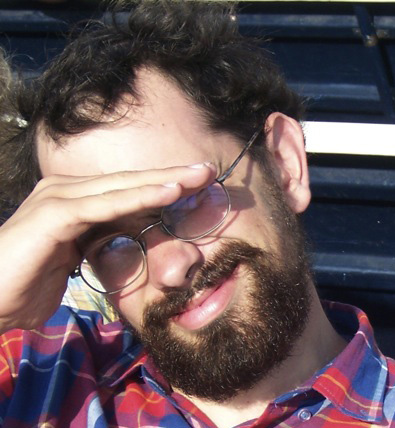What’s most exciting about this book to you?
I suppose the fact that it exists. I heard someone say every book is a little miracle.
Do you see it as a new departure for you, a continuation of earlier work/themes, or some combination?
Sometimes I think I’m writing only one poem. All the poems are one poem. Maybe.
At this point in your career, do you see your work as “Mennonite,” and how or how not?
I do think of my work as Mennonite. How could it not be? But it’s no more Mennonite than it is Jewish, Californian, Kansan, American, human, queer, sexual, hopeful, desolate, grief-stricken, naturalist, Bay Area, or any number of other defining aspects of my life, which is the life the work comes from. One reviewer of Eggtooth seemed—in a Mennonite publication, actually—to want to police the book’s sources, and to question whether the work has any claim to being Mennonite. But I think our primal sources are mostly assigned to us without our consent. We can lean into them, we can search them out, or fight them. But I don’t happen to think identity is chosen. Mostly I think it happens to you. My work is Mennonite whether I see it that way or not, because I grew up in and was shaped deeply by that community.
What themes, issues, techniques, and/or other authors were most in your mind as this project came into being?
Too many to put down at this point. Geologists, poets, translators, liars, hooligans, ordinary heroes, writers like William Least Heat-Moon, Wes Jackson, Gwendolyn Brooks. My grandmother, who was a great writer of letters. I wanted to make a poetry that could in some way be a bridge between—among—my many worlds, and a bridge between then and now, a way to see the present, often by way of the past. I found a groove and I followed it until it shut me out.
What part(s) of your writing process might other writers find useful, either to imitate or to avoid?
They would want to avoid my laziness and my tendency to get lost. I procrastinate and delay. Maybe it’s part of my process, or maybe I’m just telling myself that so I don’t feel as rotten about it.
Is there a question we haven’t asked that you’d like to pose and answer to lead us to some things you’d like to say about the book?
I’m sure there is, but I haven’t thought of it quite yet. I would, I think, like to know more about why the book is mostly in an obscure stanza shape created by a poet in a time and place very different from mine. I think it has something to do with the fascination of what’s difficult, and the grip of the necessary, which is also arbitrary, and the propulsive urgency of rhyme. Rhyme is radical and weird. Why is that?
For further reading:
An interview with Mandana Chaffa:
https://www.ronslate.com/a-conversation-with-jesse-nathan/
An interview with Ilya Kaminsky:
https://www.mcsweeneys.net/articles/jesse-nathan
An interview with Tao Lin:
An interview with H.L. Hix:
https://www.poetrynw.org/in-conversation-something-to-sing-but-nothing-to-say-jesse-nathan-and-h-l-hix/
A review by Christian Detisch at 32 Poems:
https://32poems.com/prose/like-a-rhyme/
A review by Joseph Kidney at Poetry International:
https://www.poetryinternationalonline.com/calling-home/
A review by Noelle Canty at Southern Humanities Review:
http://www.southernhumanitiesreview.com/review-jesse-nathans-eggtooth-by-noelle-canty.html
A review by Christopher Kempf at Preposition:
https://www.prepositionmag.com/nathan-eggtooth
A review by Christopher Spaide at Poetry Foundation:
https://www.poetryfoundation.org/harriet-books/reviews/161069/eggtooth
A review by Amelia Ada at You Shouldn’t Let Poets Lie To You:
https://podcasts.apple.com/us/podcast/about-symbiosis-w-jesse-nathan/id1682705909?i=1000638221408
